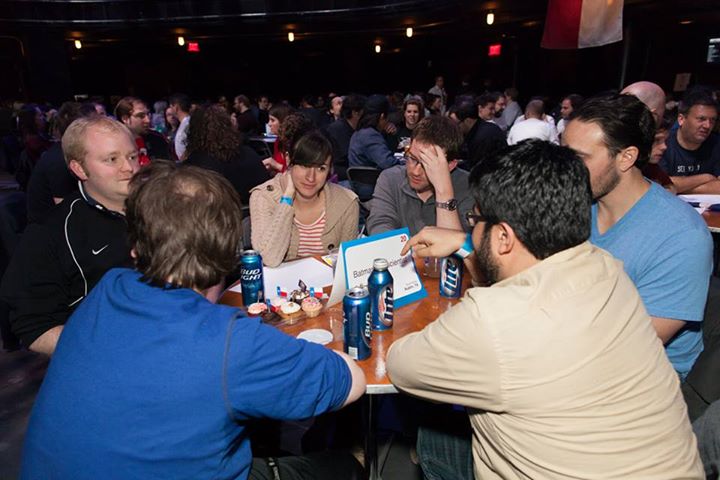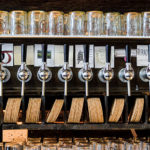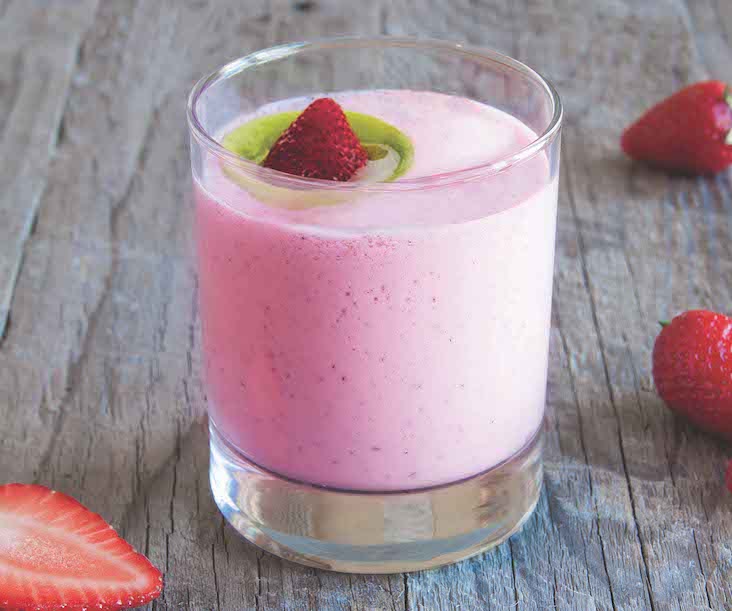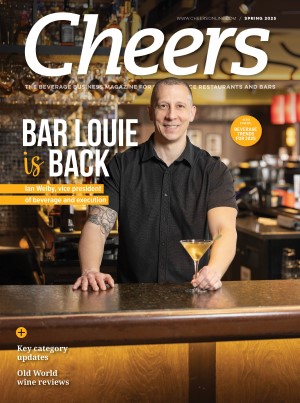Few bars or pubs can afford slow business days during the week. So how can they consistently attract customers?
Many businesses have found that trivia nights are a reliable way to draw in patrons. A well-run “pub quiz” can make the difference on weeknights between empty seats or a large crowd.
For the uninitiated, pub quizzes involve customers facing off in teams–usually with humorous names. A host emcee asks questions over a series of rounds, normally numbered two to seven, on subjects ranging from current topics to pop culture to sports to science to the more arcane.
Most emcees play music between rounds or in the background. Some present the questions with visual, audio or video cues.
The teams write down their answers, which are collected by pub or quiz employees who keep track of scores. Cheating with smartphones or other methods is looked down upon and often tightly regulated.
Teams that win or place highly receive bar prizes such as gift certificates–a source of repeat business–or branded materials. Rivalries form, as teams and players return each week for the fun competition. The draw for trivia night is universal.
“The people who come are from all walks of life,” says Alley Meeker of Big Boy Entertainment, a Connecticut company whose services include trivia nights. Meeker emcees Wednesday pub quizzes at Wood-n-Tap in Wallingford, CT.

Alley Meeker of Big Boy Entertainment emcees the weekly Wednesday trivia night at Wood-n-Tap in Wallingford, Connecticut.
“They’re of different ages, different backgrounds. They’re not all geeks,” says Meeker of the typical pub quiz contestants. “Some people come every week and always lose, but they don’t care, because they’re having drinks and meeting new people.”
Some businesses hold running leagues, which carry over scores from week to week. Other leagues take place regionally or nationally.
Whatever the format, the goal for bars and pubs remains the same: boost revenue on weeknights through increased food and drink orders. The Harp in Amherst, MA, sometimes sees ten times the normal number of patrons show up for its Tuesday pub quiz. O’Neill’s Pub & Restaurant in South Norwalk, CT, achieves at least twice their ordinary business during trivia nights.
“A 300 to 400 percent increase in business wouldn’t be off the mark,” said Liam McAtasney, long-time owner of the San Francisco-based company Brainstormer, which sells pub-quiz services.
Trivia Event Vendors
Pub quiz vendors tend to employ numerous part-time “quiz masters” to host their services throughout the country. These people will emcee the event, taking charge of the technical and organizational aspects; advertising and prizes are usually left to the bars.
“They have to be trivia people by nature,” McAtasney says of quiz masters. “They have to like taking part in trivia quizzes. They have to have that experience. That’s a prerequisite for me before I hire them.”
McAtasney was among the first trivia night vendors when he founded Brainstormer in the mid 1990s. What was then a cottage industry has become more common. Fewer bars today write their own questions and/or host their own quizzes.
“What people don’t realize is that doing good trivia is a ton of work,” says John Dicker, owner of the Denver-based trivia company Geeks Who Drink. “People think that anyone can get questions from the internet. But that’s doing a mediocre job.”
The pub-quiz industry standard is 20 to 25 questions, with a song between each question, according to Dicker. “Our quiz has 70 questions, with pictures handed out that are professionally produced, and several audio rounds, and sometimes a video round.”
It’s no small feat, he adds. “We have a whole crew working on it. We ask more questions each week than Jeopardy does. We ask original questions that are fact-checked and well thought out. Not just anyone can do this.”
Oliver O’Neill, owner of O’Neill’s, initially attempted to come up with questions himself when starting trivia nights five years ago. “I was working on the first batch and realized that I was only asking questions relevant to me,” he says. “That’s not fair and balanced, so I went out and found a vendor for a source of questions. It’s been working out really well ever since.”
Some bars do opt to run their own pub quizzes. The Harp owner Harpo Power has written all the trivia questions himself for the past 14 years, and stills emcees his own quiz each Tuesday.

Meg Jennings of team Beer Today, Gone Tomorrow writes down answers during trivia night at Wood-n-Tap in Wallingford, Connecticut.
He comes up with 50 questions each week. Only in the past year has his 20-year-old son started chipping in, providing questions on the subjects of math and technology.
“The first year we used a vendor,” Power says. “But I decided his questions were either too generic or too esoteric. It’s really important for our questions to be tailored toward the college crowd from [the University of Massachusetts]. We’re very attuned to that crowd.”
On average, Power spends six hours per week writing questions. And he does this without the internet. Rather, he consults his library of reference books and 12,000-plus previously used questions.
“If I find one mistake in a reference book, I’ll throw the whole thing away,” Power says. “If there’s one mistake in there, there may be more.”
Power also includes repeat questions that ask about the top news stories of the week or the current standings of professional sports leagues.
To League or Not to League?
Some businesses will host in-house leagues, which provide a reliable source of weekday customers. Rather than start fresh each time, bars and pubs keep a running score over the course of a season or year. Rival teams return each week, hoping to gain ground or further distance themselves from the pack.
This setup risks dissuading teams from joining mid-season. To solve this, businesses will allow new teams to enter competition with points equal to the lowest-scoring team in the league.
As the trend continues toward vendors, larger leagues have formed that take place across multiple businesses. Brainstormer hosts three seasons of competition each year in the Greater Bay area. About 150-200 teams take part, playing at bars and pubs that use McAtasney’s product. The champions from each location then contend in the finals. Grand prize for the recent season was $500, with $1,500 in total prizes.
Brainstormer is also experimenting with online quizzes. “We’re trying to do something web- or mobile-based, as an add-on to bar trivia night,” McAtasney says. “The problem with doing it over the web is that people might cheat. So we’re looking at options like holding it through a video feed, where you would use your phone as the buzzer. That removes the element of cheating.”
Geeks Who Drink does not run its own leagues, but holds an annual “Geek Bowl.” The “largest live-hosted trivia event in the U.S.,” Dicker says, Geek Bowl included more than 150 entrants in 2014.
Punishing the Cheaters
With nearly every customer now toting a smartphone, there would seem the possibility for rampant cheating.
Googling an answer on mobile internet takes seconds. Apps like Shazam–which can identify music playing in the background–allow cheating even during media-specific rounds like Name That Song.
But Dicker does not believe that dishonest play is as common as it may seem. “I always say that cheating is more of a perception issue than an actual issue,” Dicker says. “ Someone sees someone else on their cell phone sending a text and then afterward they complain on Yelp that they lost because of cheating.”
“Cheating also tends to police itself,” he adds. “If someone sees a person with their phone out doing something suspicion, they’ll tell the host, who is also keeping an eye out. And it’s a little bit harder to cheat during our quizzes, because there are so many more questions asked. People aren’t necessarily going to have time to cheat.”
Meeker of Big Boy Entertainment believes cheating is counterintuitive. “Much of the time they’re Googling the wrong thing,” she says, “or it’s really obvious from their answer that they used Google. And if we catch you once, you’re done.”
Because Amherst is a college town, where customers tend to be younger and perhaps bolder, cheating is not so uncommon at The Harp. “It’s rare that we go through a week without someone trying to do something,” says Power.

A visual round during trivia night at Wood-n-Tap in Wallingford, Connecticut, challenges participants to name U.S. states based only on their shape.
Accordingly, Power and his wait staff are on the lookout. “You can see the reflection of a cell phone underneath a table, especially smartphones, because of their larger screens,” he says. “If they try to use an electronic device, they almost always get caught.”
If a team is under suspicion of shady activity, Power will require all of its members to put their cell phones in a Ziplock baggie. “It’s only a couple of hours,” he says. “They can do without their phones for that long.”
“They get one second chance,” he adds. “After that, they’re out, and they forfeit their entry fees into our charity pool. And there are usually 95 or so other people in the pub hooting at them as they leave. It’s a form of shaming that works very well.”
Maintaining a healthy turnout for trivia night is key for a place like The Harp. The business is “an outlier” among popular UMass bars, Power says, located three to four miles away from the campus and other college bars.
To advertise, he uses social media and the pub website, along with flyers at nearby UMass bus stops. Marketing his trivia night is also aided by tradition and word-of-mouth. “It’s become somewhat self-sustaining after 14 years,” he says.
The Harp has also built a tradition of community service, channeling money raised from trivia nights into local charities, funds and causes, such as the North Amherst Children’s Library Fund. “We raise $7,500 to $10,000 each year this way,” Power says.
The Question is as Important as the Answer
After nearly a decade-and-a-half of writing and running trivia nights, what does Power believe makes for a good trivia question? “The answer has to be irrevocably, unambiguously clear,” he says. “There can be no room for argument or discussion.”
For instance, a bad question would be: “Who of these baseball players was the best to ever play for the St. Louis Cardinals?” A good question would be: “Who of these St. Louis hitters had the highest career batting average?”
McAtasney agrees that answers must be definite and not a matter of opinion, adding, “We want to have questions that are entertaining as well as informative. And they should not be so difficult that people in the bar do not know the answer.”
“We try to give hints in the questions as to what the answers would be,” McAtasney adds. “About 70 percent of the audience should be able to get the answer correct. And after we ask a question, we like to give a tidbit as a follow-up — something that maybe people don’t know.”
Test Your Knowledge
Here are five sample questions and tidbits from Brainstormer (no cheating!):
- Which Indian-American actor and comedian first gained recognition on the MTV sketch show ‘Human Giant’ before gaining fame for his role as Tom Haverford in NBC’s ‘Parks and Recreation’?
- What fast food restaurant uses square hamburger patties instead of round ones?
- Standing at 6 feet 4 inches, the tallest U.S. President elected to office was Abraham Lincoln. Who was the shortest U.S. President elected to office? (Note: Wheelchairs don’t count)
- Put these Florida sports franchises in order of when they first established as a team in Florida, starting with the earliest and ending with the most recent: Tampa Bay Buccaneers, Miami Dolphins, Jacksonville Jaguars, Miami Heat. (Note: You earn a total of four points for listing all teams in the correct sequence. You can earn partial credit for listing any of the teams it its correct place in the sequence.)
- What European currency recently jumped in value by more than 40 percent against the euro after its national bank scrapped its currency cap with the euro?
Answers:
- Aziz Ansari (Before going into show business, Ansari got a degree in actual business from NYU.
- Wendy’s (This is the restaurant’s ‘signature’ rather than having a signature sandwich like the Big Mac or Whopper.)
- James Madison (5 feet, 4 inches tall)
- Miami Dolphins (1966, in the AFL), Tampa Bay Buccaneers (1976), Miami Heat (1988), Jacksonville Jaguars (1995)
- Swiss Franc (The move prompted Swiss tennis star, Roger Federer, to say, ‘Does it mean I’ve got to win now?’)
Featured photo from Geek Bowl VIII courtesy of Geeks Who Drink.








Kyle thanks for coming out to Wood n Tap! It was great meeting you. It’s nice to see more exposure for what I love doing!